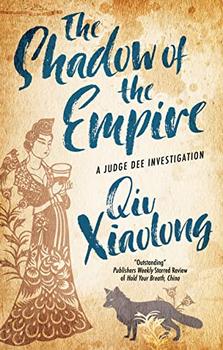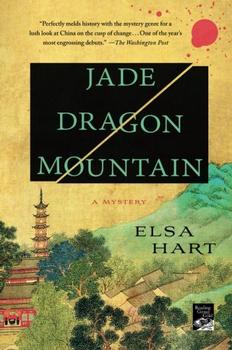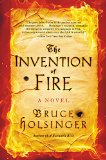Summary | Excerpt | Reviews | Beyond the book | Read-Alikes | Genres & Themes | Author Bio

A Judge Dee Investigation #1
by Qiu XiaolongThe Shadow of the Empire revolves around Tang Dynasty government official Judge Dee. Dee is dispatched to find evidence necessary to convict an accused killer, Yu Xuanji, who is an alluring courtesan and poet. The story takes place a short distance from present-day Xi'an, once called Chang'an, which was, for centuries, the capital of China. Author Qiu Xiaolong — born in China but living in the US since 1988 — is known for the popular Detective Chen mystery series set in contemporary Shanghai; this is his first plunge into a historic era. While Judge Dee and Yu Xuanji are both based on real people, Qiu fictionalizes many details of the case, and leaves much for readers to discover between the lines. This novel includes an informative author's postscript for historical context and an appendix of translated poetry from the era.
Judge Dee decides that his own devotion to poetry might help untangle complex questions of why the elegant courtesan Yu Xuanji has apparently murdered her housemaid. Poems contain allusions and imagery that lead Dee and his "investigative assistant," Yang, on a few wild goose chases. They interview a cast of characters, including a flower seller, the mayor, a stationer and the courtesan herself, who is already in prison.
Descriptions of settings are vivid and often metaphorical. "It took some effort for Judge Dee to make his way down, stepping carefully along the narrow, slippery trail winding down from the mid-hill temple, which overlooked a green expanse of rice paddy fields at the foot of the hill. A tiny pine nut was heard dropping in the secluded trail, with the bell from the temple growing fainter in a cool breath of wind."
Our intrepid detective knows that he must tread lightly with this case. Empress Wu, a ruler embroiled in a power struggle to maintain her reign and control the dynasty's succession, intends to convict the accused courtesan no matter the body of evidence weighing to the contrary. Judge Dee pretends he is gathering poems and information about the poetess to aid in the conviction as a pretext for digging around for clues. He has been warned by higher officials that the case is closed (because the accused confessed). But Dee is curious because things don't add up, so at some personal risk to himself, he searches for information about the courtesan's many lovers —some secret, others not-so-secret — and the whereabouts of each character on the night of the murder.
While the author's descriptions of temples, scrolls and woodblock printing are fascinating, I yearned for more sensory details about food, drink, art and fashions of the day. The action can be weighed down with long passages of dialogue between characters, which may fit with the investigative methods of Judge Dee but sometimes slows dramatic tension. My interest in history and poetry meant that the novel usually held my attention, though, and the dialogue reveals clues about the crime (along with some red herrings). When Judge Dee finally gains access to interview the accused courtesan, he asks her to explain the facts of the night of the murder.
"Guess how the flower girl Zhang described the mysterious man you were seeing for the last couple of months? She said you compared him to 'a divine dragon soaring in the clouds, with its head visible…'"
She refuses to divulge the identity of that night's rumored gentleman caller, saying, "Zhang is a young, naïve girl who has a knack for exaggeration."
One theme explored here is how a woman almost always pays the price for a doomed love affair. Another timeless theme is how justice can be trampled when those in power are determined to preserve their grip on empire.
I quite enjoyed reading a novel where messages are delivered at the tip of an arrow, or are coded into poems handwritten with ink and pen. Travel in those times was by foot, carriage, or on horseback, and I was happy to slow down and savor an intricate mystery on a rainy day sitting by the fire. This book will likely appeal to those who love poetry and history, though bear in mind there is some graphic language about torture. I highly recommend The Shadow of the Empire (and Qiu Xiaolong's Inspector Chen series) for those fascinated by or contemplating travel to China. Pair it with dragon-well tea and dumplings for a book group discussion.
![]() This review was originally published in The BookBrowse Review in February 2022, and has been updated for the
November 2022 edition.
Click here to go to this issue.
This review was originally published in The BookBrowse Review in February 2022, and has been updated for the
November 2022 edition.
Click here to go to this issue.

If you liked The Shadow of the Empire, try these:

by Elsa Hart
Published 2016
On the mountainous border of China and Tibet in 1708, a detective must learn what a killer already knows: that empires rise and fall on the strength of the stories they tell.

by Bruce Holsinger
Published 2016
Fourteenth-century London comes alive in all its color and detail in this riveting thriller featuring medieval poet and fixer John Gower—a twisty tale rife with intrigue, danger mystery, and murder.
Your guide toexceptional books
BookBrowse seeks out and recommends the best in contemporary fiction and nonfiction—books that not only engage and entertain but also deepen our understanding of ourselves and the world around us.